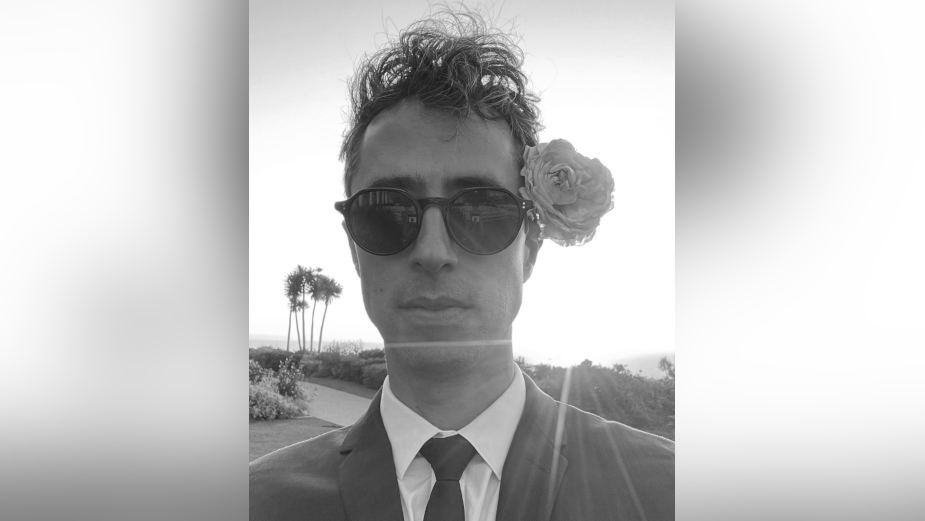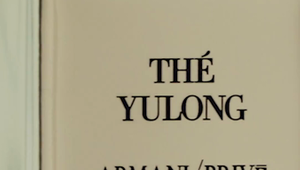
Finely Sliced: Understanding the Essence of the Story with Ryan McCally

Long-time New Yorker Ryan McCally grew up in Long Island and has only recently relocated to Los Angeles. Following his tenure as Consulate founder Chad Sipkin’s assistant, Ryan McCally signed on as an editor, bringing his playful and emotionally-centred style to fashion, narrative, and music clients alike.
Always interesting, his choice of cuts and sense of timing has a sense of elegance and musicality to it. Ryan has collaborated with high-end brands Gucci, Stuart Weitzman, and Balenciaga and large retailers Gap, Vans, and Dick’s Sporting Goods. He has also served as editor on Selena Gomez’s music video for 'Fetish' ft. Gucci Mane and directed by Petra F. Collins.
Citing Chad Sipkin’s professional history as Sofia Coppola’s go-to editor, Ryan’s connection with Consulate was as innate as it was intentional; he still credits The Virgin Suicides as a primary influence on him as an artist and filmmaker.
LBB> The first cut is the deepest: how do you like to start an editing project?
Ryan> I start by flying through the footage to see what I gravitate towards. Sometimes I’ll cut small bits together as I have ideas. I just play for a while before actually screening. Perhaps I’m procrastinating, but once it hooks me, I’ll work until someone makes me stop.
If I have a chance, I will chat with the director about the shoot, but also about food. Mostly lunch, to be specific. I can learn a lot about a person’s perspective through off-topic conversations. Understanding the idea is helped by understanding the director or the creative.
LBB> Non-editors often think of editing just in technical terms but it’s integral to the emotion and mood of a film. How did you develop that side of your craft?
Ryan> Stories are told everywhere - through music, architecture, fashion, or a good party. Film is fun because you get to play with all of it. I am always pulling things apart to understand how they work. I recently heard a Roy Orbison track that showed me something new. The track is basically told backward, starting at its height and unravelling down to its simple melody. I pocket these devices and apply them to editing.
LBB> How important is an understanding of story and the mechanics of story?
Ryan> Understanding the essence of the story is critical for me - once I understand that in simple terms, I can drive the story toward that place. Some devices come intuitively, and some take a more pragmatic, structured approach. But in the end, it only matters how it feels, so it’s important to consult with that side of your brain.
LBB> Rhythm and a sense of musicality seem to be intrinsic to good editing (even when it’s a film without actual music) – how do you think about the rhythm side of editing, how do you feel out the beats of a scene or a spot? And do you like to cut to music?
Ryan> I often will swap out the music track as I edit to keep it alive and fresh in my eyes. The rhythm comes from the footage, camera movement, and action in the frame. Ideally, the work can hold up without any audio.
In the beginning, the performance drives the pace. That is adjusted to serve the story better when all beats/scenes are pulled together.
LBB> In the US we know that editors are much more heavily involved across the post production process than in Europe - what’s your favourite part of that side of the job?
Ryan> I love meeting new people and understanding their perspectives. Cutting commercials means I get to meet lots of them all the time. There are so many smart, creative people in this industry - it keeps it interesting.
LBB> What’s harder to cut around – too much material or not enough? (And why?)
Ryan> I’m going to go the other way on this. I find it’s harder to cut with too much great material. The decision to cut a beautiful shot or performance is heart breaking and will bug me for a week. Cutting with too little might push me in a direction I otherwise wouldn’t take. (Okay, fine, it’s generally better to have options)
LBB> Which commercial projects are you proudest of and why?
Ryan> A few years away from a project is when I can really see it. Recently I watched Duracell ‘Reconnected’ an old commercial and was still affected by it. I knew the story. I knew how it ended. But I was like, shit. It got me.
LBB> There are so many different platforms for film content now, and even in advertising something can last anything from a few seconds to a couple of hours. As an editor, are you seeing a change in the kind of projects you’re getting from brands and agencies?
Ryan> We receive longer lists of deliverables than before. And creatives are responsible for creating more content. Ultimately, this elevates the editors as we are trusted to drive the creative through the post process simply because everyone is occupied with the next content set.
Requests for longer and shorter durations have also come about. I love the short formats, :10s and :15s. These are typically single ideas where you can define a feeling or thought in a pure way - little mood pills.
LBB> Who are your editing heroes and why? What films or spots epitomise good editing for you?
Ryan> There are so many great editors doing interesting work. I was brought up assisting Chad Sipkin, who approaches editing as an art form. He taught me, among other things, the creative process, which not only leads to the discovery of new ideas but can also get you out of a pinch! I love good and sometimes bad editing - if it feels right, it’s right.















